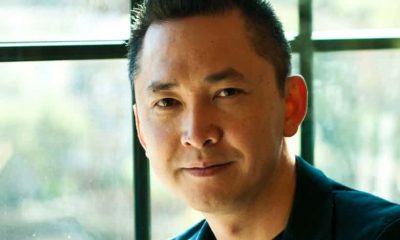The Guardian’s Alison Flood writes a piece highlighting Viet Thanh Nguyen and Jesmyn Ward as two recipients of the 2017 MacArthur Genius Grant.

Viet Thanh Nguyen and Jesmyn Ward, two novelists exploring how writers from minority communities must “claim the same rights” as the majority, have landed $625,000 (£470,000) MacArthur fellowships, popularly known as “genius grants”.
The no-strings-attached fellowships, which have previously gone to writers including Claudia Rankine and Ta-Nehisi Coates, are intended “to encourage people of outstanding talent to pursue their own creative, intellectual, and professional inclinations”. Two novelists were among this year’s selection of 24 fellows, which included mathematicians, historians, computer scientists and anthropologists. Ward was picked for novels “exploring the enduring bonds of community and familial love among poor African Americans of the rural South, against a landscape of circumscribed possibilities and lost potential”. Nguyen was chosen for “challenging popular depictions of the Vietnam war and exploring the myriad ways that war lives on for those it has displaced”.
Nguyen, whose novel The Sympathizer won a Pulitzer prize in 2016, said in an interview with the MacArthur programme that he “grew up deeply immersed in the stories of the Vietnamese refugee community in California, and aware that the stories and the depths of emotions were completely invisible and inaudible to the larger American population”.
“The Vietnam war was very important to the way Americans saw, or didn’t see, people like me,” he said. “And I realised that the ways Americans were telling stories about this war were completely erasing the Vietnamese experience. I began thinking that one of literature’s tasks was to give voices to the voiceless and to humanise people, and this is especially true for minorities in this country.”
His books of short stories, The Refugees, “worked exactly in that register, trying to humanise Vietnamese people. But eventually I realised this was a task doomed to defeat, because we’re already human, why would we need to humanise ourselves?” When he wrote The Sympathizer, Nguyen added, he decided he was “done with trying to prove the humanity of Vietnamese people. Our task is not to humanise, our task is to claim the same rights and prerogatives of subjectivity and identity and complex humanity and inhumanity that the majority reserves for itself.”
He hoped that people would take from his work – which also includes the acclaimed nonfiction study of the war’s impact, Nothing Ever Dies – “the necessity of thinking and feeling from the position of people who are not like them”.

“It’s a natural human tendency to think and feel for people who we think are like us, and this is both very human and very disastrous,” he said. “It’s partly what gets us in to war and conflict, because we can’t imagine the perspectives of other people”.
The MacArthur Foundation said that Nguyen’s work “not only offers insight into the experiences of refugees past and present, but also poses profound questions about how we might more accurately and conscientiously portray the victims and adversaries of other wars”.
Ward won the National Book Award in 2011 with Salvage the Bones, which follows four siblings in the days immediately before and after Hurricane Katrina. She spoke of the influence of her Mississippi upbringing.
“In my family and in my community, I see people struggling with drug addiction, with poverty and the effects of generational poverty, I see people struggling with lack of access to healthcare,” she said. “If I’m honest about the people that I love … then I need my characters to live through the same things that the people I love and care about are living with and struggling with. I know it’s been easy for people who are not familiar with them to stereotype them, to see them as being only one thing, to flatten them. That bothers me, because I know that they are people like anyone else, and that they struggle with the same things that all human beings struggle with. I hope people who read my books … feel empathy for us and really see us as complicated people.”
Announcing her as one of its 2017 fellows, the MacArthur Foundation praised Ward for writing “prose that is simultaneously luminous and achingly honest”, in which she “captures moments of beauty, tenderness, and resilience against a bleak landscape of crushing poverty, racism, addiction, and incarceration”.


